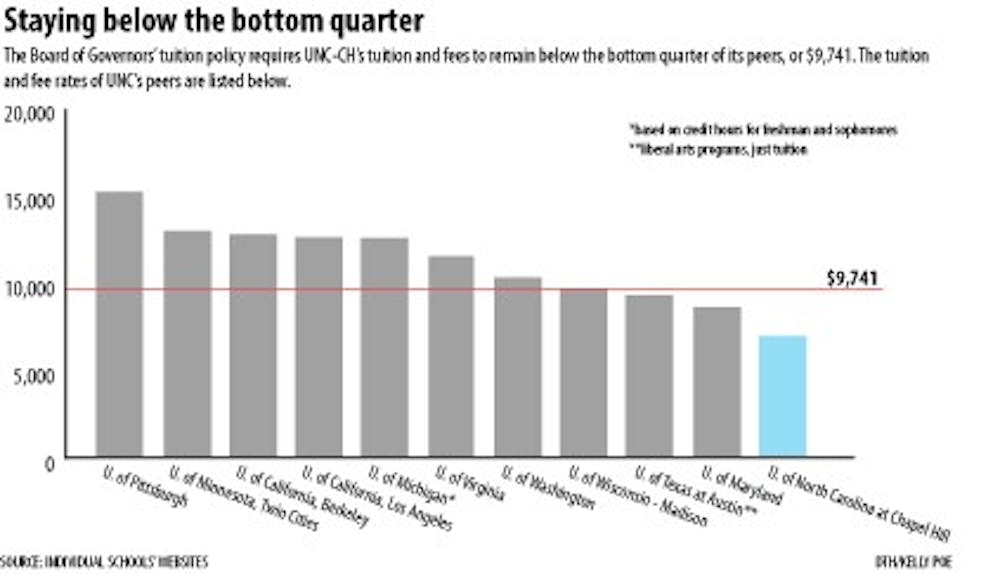Although UNC’s tentative multi-year proposal to increase tuition by 40 percent would fit within the confines of the UNC-system Board of Governors’ tuition policy, board members say it’s not a foregone conclusion that the increase will be approved.
The board approved a new Four Year Tuition Plan last year, which maintained a 6.5 percent cap on tuition increases proposed by universities. But the plan also included a clause permitting schools to “catch up” to their public peer institutions’ tuition and fee rates, as long as they remain within the bottom quarter of their peers’.
UNC’s tuition and fee advisory task force met last month and discussed a proposal to increase tuition by $2,800 during a two-to-four year span. The increase would raise the University’s tuition and fee rate to $9,808 for all resident undergraduate students.
Charlie Perusse, vice president for finance for the system, said UNC’s tuition and fee rate would remain within the bottom quarter of its peers’ rates after such an increase.
The bottom quarter rate, which is the maximum amount the University can raise its tuition and fees, stands at $9,741. But UNC’s tuition and fee increases will be phased in and not surpass that mark in a single academic year, Perusse said.
The system’s General Administration will work with the University to ensure its tuition and fees remain below the bottom quarter as the rates of its peers fluctuate, he said.
Yet remaining within the bottom quarter does not guarantee that the proposal will be approved by the board, said Brad Wilson, emeritus member and former chairman of the board.
“Just because you have the headroom within the lower quartile does not mean, by definition, that the Board of Governors would accept it,” he said. “Each proposal is judged on its own merits.”
Wilson said a number of other factors will influence the board’s decision, including the historical role of tuition as a secondary source of revenue to state appropriations. The state’s constitution says that a public university education should be free for state residents “as far as practicable.”



